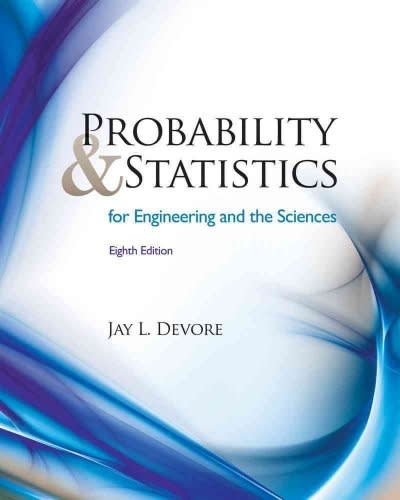An educational consulting firm is trying to decide whether high school students who have never before used
Question:
An educational consulting firm is trying to decide whether high school students who have never before used a handheld calculator can solve a certain type of problem more easily with a calculator that uses reverse Polish logic or one that does not use this logic. A sample of 25 students is selected and allowed to practice on both calculators. Then each student is asked to work one problem on the reverse Polish calculator and a similar problem on the other. Let
, where S indicates that a student worked the problem more quickly using reverse Polish logic than without, and let of S’s.
a. If , what is ?
b. If , what is ?
c. If the claim that is to be rejected when either or , what is the probability of rejecting the claim when it is actually correct?
d. If the decision to reject the claim is made as in part (c), what is the probability that the claim is not rejected when ? When ?
e. What decision rule would you choose for rejecting the claim if you wanted the probability in part
(c) to be at most .01?
Step by Step Answer:

Probability And Statistics For Engineering And The Sciences
ISBN: 9781133169345
8th Edition
Authors: Jay L Devore, Roger Ellsbury






